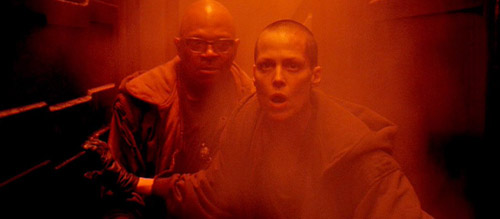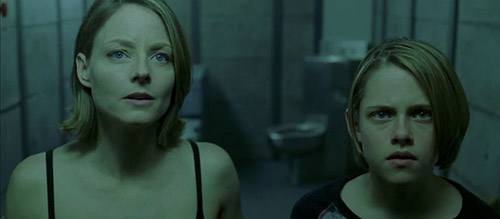David Fincher Movies Ranked
“I don’t know how much movies should entertain. To me I’m interested in movies that scar.” – David Fincher (“Seventh Hell” by Mark Salisbury)
David Fincher is one of the best and most accomplished filmmakers working in 21st century Hollywood. He has received three Best Director nominations at the Academy Awards for The Curious Case of Benjamin Button, The Social Network, and Mank (each of which also received Best Picture nominations), and a Palme d’Or nomination at Cannes for Zodiac. His projects are consistently well-funded, well-reviewed, and beloved by audiences.
Fincher represents a synthesis of filmmaking styles. He is a student of Stanley Kubrick’s cold observation and Steven Spielberg’s guiding composition, matching each director’s reputed attention to detail. His versatility working in genres from sci-fi to drama to psychological thriller demonstrate an ability to bring what’s needed to a film while maintaining a distinct aesthetic.
His textural style is marked by high-contrast lighting, visual distancing that highlights important close-ups, and focused montage – even when the color palette changes, or the camera incorporates new techniques based on momentary decision-making, Fincher’s tendencies can be identified throughout his work. Fincher is also associated with the advancement of visual effects in the film industry. Benjamin Button, The Social Network, and, to a lesser extent, Zodiac, contain specific digital effects that are notable for their quality – as in Benjamin Button, with the Winklevoss twins in The Social Network, and the CGI blood in Zodiac.
Fincher was also among the early pioneers of digital cinema on a large scale. Zodiac was the first film to be shot straight to a hard drive, and Mank was filmed on a black-and-white digital camera rather than converting color in post-production (as was the case with The Artist due to technological constraints). These choices are solutions to problems more so than aesthetic preference – the switch to digital improves workflow, costumes don’t need to be changed when the blood isn’t real, and why not cast Armie Hammer to “be” two people when you can just put his face on another actor’s body?
Fincher doesn’t write his own scripts, but he knows a good one when he sees it and is instrumental to shaping it through the development and production process. The narratives Fincher selects see their characters put through the wringer, often physically and emotionally. There’s often a sense of mystery that the audience explores alongside the characters, and we are left with a sense of clarity by the end, be it optimistic or dour. Perhaps most prolific are his serial killer procedurals, including the Netflix series ‘Mindhunter,’ where his characters work inside and outside the “system” to solve a case while losing themselves along the way.
David Fincher loathes the association with a brand, but how else can he be described? This article will rank Fincher’s films based on the image of a “David Fincher movie.” How do these films best embody the director known for his incredible work ethic, sweeping control that values collaboration, synthesizing of old and new, and dark stories presented in an unintrusive aesthetic?
Follow @thefilmagazine on X (Twitter).
12. Alien 3 (1992)
“No one hated [Alien 3] more than me,” Fincher told The Guardian.
The third instalment of the Alien franchise follows Ripley after she crash lands on a prison planet inhabited by religious zealots who are outraged by the presence of a woman.
The special effects and drab, grungy mise-en-scene are most notable in this otherwise boring film with a senseless, meandering plot.
The Assembly Cut of Alien 3, the film’s redemption in its apologists’ eyes, was not constructed by Fincher, so it’s hard to even associate it with him even if his name is on the film.
Anyone who has the luxury of never having seen Alien 3 should stay in blissful ignorance. Pretend ‘Mindhunter’ is the eleventh Fincher film and watch that instead.
Recommended for you: Alien Movie Franchise Ranked
11. Panic Room (2002)
Films that take place in one location are tough to get right, especially when a significant amount of time has two characters in one small room.
Fincher’s camera uses every bit of space while keeping the sense of claustrophobia and fear. The script is clever, and the performances help carry the film through its near two-hour runtime.
It’s a solid film, but it feels hollow. It’s lacking a real thematic punch that is present in other Fincher movies – it’s effective, thrilling filmmaking that foregrounds women in action roles, and is certainly worth a watch.
Panic Room is the kind of movie that would make for a strong debut, but its context between Fight Club and Zodiac – two landmarks in Fincher’s career – keeps it on the lower end of this ranking.



